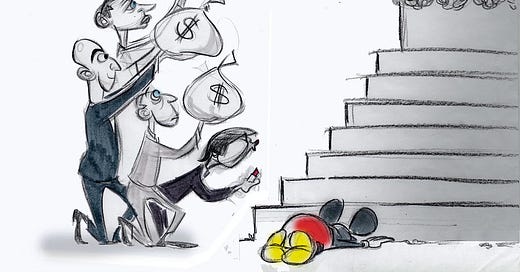Ann Telnaes, the Washington Post, and a childhood dream that still lives
About Ann Telnaes resigning from the Washington Post over a spiked cartoon
Ann Telnaes is a brilliant, Pulitzer Prize-winning editorial cartoonist for the Washington Post, and I’m proud to know her. Yesterday, she posted to her Substack that after The Post rejected this rough sketch, she resigned in protest:
If, like me, you want to continue seeing her work, you may want to subscribe to her Substack right now.
I’ve spoken on a c…
Keep reading with a 7-day free trial
Subscribe to Disobey in Advance to keep reading this post and get 7 days of free access to the full post archives.



